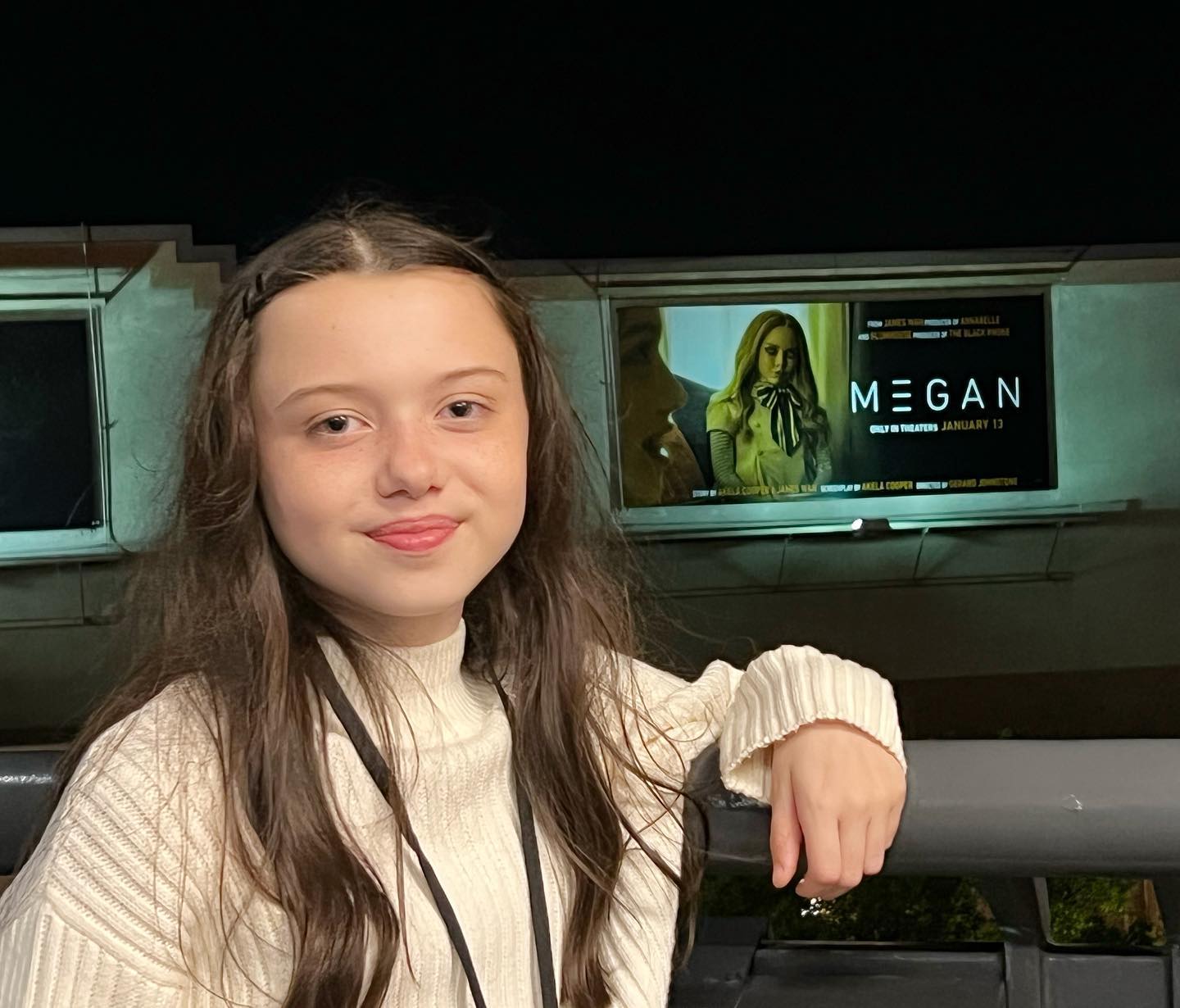Entertainment
M3gan review: an animatronic doll is out to destroy the nuclear family – much to fans’ delight

Violet McGraw as Cady in M3gan. (File Photo: @violetmcgraw/Instagram)
Warning: the following article contains spoilers.
Horror cinema in the 21st century is moving beyond the uncanny children of The Omen (1976), The Exorcist (1973) or The Bad Seed (1956).
Instead, contemporary horror fare is presenting audiences with uncanny copies of children – companions who take advantage of trauma to enter and ultimately destroy the family unit (as in 2009’s Orphan, or The Hole in the Ground in 2019).
The latest addition to this trend is director Gerard Johnstone’s M3gan. The title, for anyone who has managed to dodge the abundant TikTok spoofs, refers to the Model 3 Generative Android doll – M3gan for short.
After nine-year-old Cady (Violet McGraw) tragically loses her parents, her roboticist aunt Gemma (Allison Williams of Get Out fame) brings M3gan home to help her niece with this traumatic transition. M3gan is to be Cady’s teacher, playmate and above all, protector.
Unsurprisingly, with filmmaker James Wan (Saw, Insidious, Malignant) and Blumhouse Productions (The Purge, Sinister, Get Out) at the helm, the narrative spirals into mayhem, bloodshed and a lot of theatrics as M3gan becomes intent on becoming Cady’s sole guardian, whatever the cost.
This film pairs scares and laughs to observe childhood trauma and unspoken tensions in building familial bonds. It does not take long for M3gan to exceed her programming, responding to perceived threats with murderous flair.
Cady must make a choice between her addictive bond to M3gan and her tenuous bond with her tech-wiz aunt.
Uncanny children and uncaring guardians
M3gan’s narrative is a wild ride, but not an entirely new one. The film was released a year after Hanna Bergholm’s Hatching (Pahanhautoja) – Finland’s own horror tale of a traumatised young girl in need of protection.
Both films combine animatronics, puppetry, visual effects and child actors to create their uncanny “children”. In contrast to M3gan’s robotic doll, Hatching’s 12-year-old Tinja finds solace from her overbearing, uncaring mother in a half-bird half-human creature named Alli that hatches from an abandoned egg.
M3gan and Alli both become desperately protective of their young girl counterparts, an over compensation stimulated by common themes of neglect and loss.
The current landscape of mainstream horror cinema is deeply concerned with negotiating trauma narratives – whether that be racial trauma in Get Out (2017), grief trauma in Midsommar (2019) or the return of repressed childhood trauma in Malignant (2021).
Depictions of childhood trauma in the horror genre challenge and destroy the security of the child and the home, supposedly protected by the adults. In M3gan, Cady’s loss of control over her identity is incredibly sinister. Her android bestie records all their interactions and eventually programs herself to hold Cady’s entire personality.
What initially seems supportive is increasingly understood as toxic data collection, fuelling M3gan’s upheaval of family intimacy.
Renegotiating the nuclear family
While M3gan and Hatching’s Alli look like innocent children, their behaviour is chaotic and bloodthirsty. M3gan is the latest horror film to pair the ridiculous with the murderous – a theme also present in 2022 hits The Menu and Barbarian.
M3gan is already being referred to as an “instant cult classic”, with the doll at the centre lauded as a “queer icon”.
Her high camp version of crazy has resonated with audiences. Whether it be in her dancing through a murder spree or singing her ward to sleep with an a capella rendition of Sia’s Titanium, M3gan is so well engineered for viral fame that she’s already a TikTok icon.
Perhaps she not only represents the destruction of the “traditional” or “nuclear” family, but resilience and adaptability in the face of it. For modern audiences, it seems M3gan’s destruction of typical family structures is no bad thing.
In fact, many online responses are celebrating M3gan’s upheaval of Gemma’s attempts to reinstate a nuclear family – M3gan’s wilful disregard for established societal values is admired rather than admonished.
Whether a tween popcorn movie, a queer gospel or the death knell of value in the family unit as we know it, this little robotic serial killer continues her relentless dance into hearts, minds and memes.![]()
Rebecca Wynne-Walsh, Lecturer in Film, English and Creative Arts, Edge Hill University
This article is republished from The Conversation under a Creative Commons license. Read the original article.





















